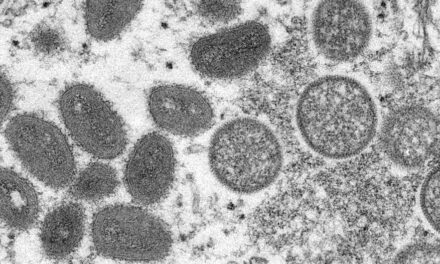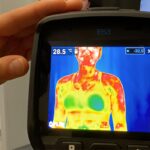Situation at a glance
Description of the situation
On 13 September 2024, the IHR NFP for Barbados notified WHO of one confirmed human infection with WNV. This marks the first detected human case of WNV reported from Barbados.
The patient is a child less than 15-year-old residing in Bagatelle, St. Thomas. On 10 June, the patient reported the onset of symptoms including headache, fever, vomiting, neck pain and painful knees, and visited a private clinic on 14 June. A test for dengue conducted on the same day was negative.
The patient was hospitalized at the Pediatric Intensive Care Unit (PICU) of a hospital on 16 June due to worsening of signs and symptoms, including joint pain, abdominal pain, altered mental status, and slurred speech. Cerebrospinal fluid analysis returned negative results for some bacterial and viral pathogens. Despite treatment, the patient’s condition worsened.
On 3 September 2024, blood samples were collected and sent to the Mayo Clinic in the United States of America for WNV testing. The presence of West Nile virus antibodies (IgG) was confirmed on 4 September 2024. The patient is still under care and recovering.
The patient reported visiting a horse stable in February 2024 and a beach frequented by horses on 8 June 2024, two days before symptom onset. Although these exposures to horses were considered risk factors for WNV infection, the precise source of infection remains unspecified. No other suspected cases of WNV were identified, but public health authorities continue to monitor the situation closely.
Epidemiology
The WNV primarily infects humans through the bites of infected mosquitoes but can also be transmitted through human-origin health products (blood transfusion, organ transplant, etc.). The virus is generally carried by migratory birds and transmitted locally by mosquitoes to humans, horses and other mammals. It is important to note that horses and humans cannot transmit the virus to new mosquitoes.
WNV infection in humans usually causes mild disease, with approximately 80% of those infected being asymptomatic. The incubation period is usually 3 to 14 days. About 20% of people who become infected with WNV will develop West Nile fever. Symptoms include fever, headache, tiredness, and body aches, nausea, vomiting, occasionally with a skin rash (on the trunk of the body) and swollen lymph glands.
It is estimated that approximately 1 in 150 persons infected with the WNV will develop a more severe form of disease. The symptoms of severe disease (also called neuroinvasive disease, such as West Nile encephalitis or meningitis or West Nile poliomyelitis) include headache, high fever, neck stiffness, stupor, disorientation, coma, tremors, convulsions, muscle weakness, and paralysis. Serious illness can occur in people of any age, however, people over the age of 50 and some immunocompromised persons (for example, transplant patients) are at the highest risk of getting severely ill when infected with WNV. No vaccine currently exists for humans.
This is the first human case of WNV infection detected in Barbados. Additionally, no infections have been previously documented in birds or horses in this country, making this case both unusual and unexpected. However, the WNV has spread throughout the Caribbean, likely via infected migratory birds. A quantitative risk assessment of the introduction of WNV into Barbados, conducted in 2007, highlighted that the presence of migratory birds and mosquitoes posed an imminent threat to the virus’s introduction.
Public health response
The Health Authorities in Barbados implemented the following Public Health measures:
- Interviews were conducted with the patient’s parents to investigate risk factors such as exposure to animals known to carry WNV, recent travel history, and other relevant factors.
- Ongoing epidemiological surveillance and testing have been implemented to ensure no further cases are missed and to evaluate the potential risk of local transmission in the area.
WHO risk assessment
Although no cases of WNV have been documented in birds or horses in the country, it is possible that the virus is circulating in these populations undetected. Despite this, the overall impact on public health remains limited at this stage, as there is currently only one recorded human case and appropriate public health response measures have been implemented, as described above.
The risk of international dissemination of WNV from Barbados is low. The virus is primarily transmitted through mosquito bites, with birds as the natural hosts. There is no evidence to suggest that WNV spreads easily between humans or from horses to mosquitoes. Therefore, the potential for widespread international transmission remains low.
Based on these criteria, the overall risk related to the public health remains low. WHO will continue to evaluate the epidemiological situation in Barbados.
WHO advice
The WNV can be diagnosed through various tests, including ELISA for IgG and IgM antibodies, neutralization assays, RT-PCR, and virus isolation in cell culture. IgM antibodies can be detected in nearly all infected patients at the time of clinical presentation and may persist for over a year. There are no specific treatments for the disease other than supportive care, involving hospitalization, intravenous fluids, and respiratory support for the patient. Most people or animals affected recover spontaneously. There is no vaccine available for humans.
WNV is sustained through a mosquito-bird-mosquito transmission cycle, primarily involving Culex mosquitoes. Birds serve as reservoir hosts, while horses and humans are dead-end hosts, meaning they do not transmit the infection. In horses, vaccines have been developed and treatment is supportive.
There is a focus on prevention including raising awareness of risk factors and measures to reduce exposure, such as using mosquito nets, repellents, wearing clothes that cover legs and arms, and avoiding outdoor activities during peak mosquito biting times.
Comprehensive mosquito surveillance and control programs are essential, including source reduction, water management, and biological and chemical control methods. In healthcare settings, health workers should implement standard infection control precautions and handle samples carefully in equipped laboratories.
WHO does not recommend any restrictions on travel and/or trade for Barbados based on available information on this event.
Further information
- World Health Organization. West Nile virus. Geneva: WHO; 2017. Available from: https://www.who.int/news-room/fact-sheets/detail/west-nile-virus
- United States Centers for Disease Control and Prevention. About West Nile. Atlanta: CDC; 2024.Available from: https://www.cdc.gov/west-nile-virus/about/index.html
- Douglas, K. O., Kilpatrick, A. M., Levett, P. N., & Lavoie, M. C. (2007). A quantitative risk assessment of West Nile virus introduction into Barbados. West Indian Medical Journal, 56(5), 394-397. PMID: 18303749. Available from: https://www.mona.uwi.edu/fms/wimj/system/files/article_pdfs/douglas_a_quantitative_risk_assessment.pdf
- Barbados IHR National Focal Point (NFP) reports of the first human case of West Nile Virus detected in Barbados. Communication received on 13 September 2024 by e-mail. Bridgetown; 2024. Unpublished.
Citable reference: World Health Organization (3 October 2024). Disease Outbreak News; West Nile virus in Barbados. Available at: https://www.who.int/emergencies/disease-outbreak-news/item/2024-DON538












